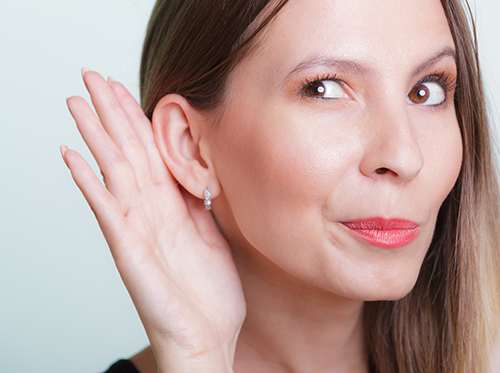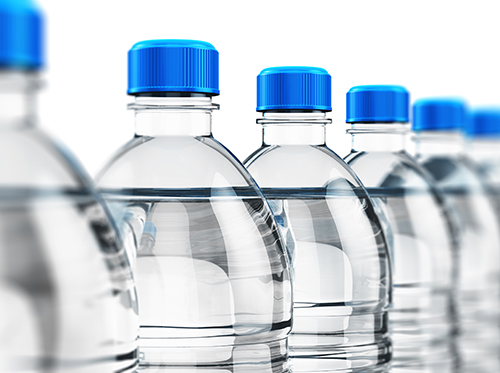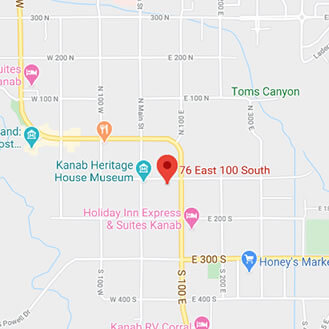July 27th, 2017

Temporomandibular dysfunction (TMD) refers to a diverse range of disorders that relate to muscular function in the jaw and face — the temporomandibular joint (TMJ). That could mean difficulty opening your mouth, pain in the jaw or face, or any sort of problem with the jaw joint.
TMD can be difficult to diagnose because of the varied causes. Whatever the case, an accurate diagnosis from Dr. Mark Webster helps make treatment as successful as possible.
Most often, jaw problems will resolve themselves within several weeks or months. Surgeries like arthrocentesis, arthroscopy, and open-joint surgery should be a last resort. More conservative and reversible treatments should come first and are in fact the most critical step in the treatment of TMD.
Less invasive treatments like acupuncture and splints can be helpful, but that will depend on your particular case. It’s worth your while to speak with Dr. Mark Webster at our Cedar City or Kanab, UT office to learn about solutions that could work for you.
A combination of treatments will most often produce the greatest relief for TMJ patients. It’s a good idea to avoid activities that overuse the jaws, such as chewing gum or clenching your jaws.
You can be proactive in finding relief for TMD by trying the following remedies at home:
- Eat soft food: When you eat soft and/or blended food, your jaw gets an opportunity to rest. Avoid chewy and crunchy food, and food that requires you to open your mouth wide, like apples or corn on the cob.
- Apply moist heat: A hot water bottle wrapped in a moist towel can help reduce symptoms.
- Apply ice: Applying an ice pack wrapped in a cloth or towel for no longer than 15 minutes may also reduce pain and promote healing.
- Do jaw exercises: A physical therapist can help identify the exercises that will work for you. Jaw exercises have been shown to be an effective treatment method that can be performed at home.
- Relaxation: Actively try to relax the muscles of the face and lips, and let your teeth come apart. Many find meditation, yoga, and slow, deep breathing to be helpful for reducing stress and tension.
- Avoid wide yawns: Keep your fist under your jaw when you feel a yawn coming on, to keep your jaw from opening too widely.
July 20th, 2017

Your opinions matter to Dr. Mark Webster and our team! Our blog is meant to be an educational channel, but we always want to know what things you’re interested in learning more about. After all, our blog is here for you to enjoy!
We’d like to encourage you to send us any ideas about what you want to see more of. No idea is too small! Whether it involves a specific treatment or advice on what kind of toothpaste you should use, we’d love to hear from you about it.
To share your thoughts with us, simply leave your comments below or on our Facebook page! You can also fill out a comment card the next time you visit our Cedar City or Kanab, UT office!
July 13th, 2017

Some people choose bottled water over tap because they think it’s cleaner. Some do it out of convenience: It’s easy to grab a bottle of water to take with you for the day as you run out the door or hop in your car.
Whatever the reason, bottled water has been coming in ahead of tap water for the last couple of years. What many people may not know is that choosing bottled water over tap can actually be detrimental to your dental health.
Most brands of bottled water fail to include a vital ingredient: fluoride. Fluoride plays an important role in helping maintain good oral health because it helps strengthen our teeth. Stronger teeth mean a lower chance of tooth decay, and who doesn’t want that?
When we choose bottled water over tap water, we deprive our pearly whites of something they might very well need.
The good news is that the American Dental Association has endorsed both community water fluoridation and products that contain fluoride as a safe way to prevent tooth decay. If bottled water happens to be the preference for you or your family, you don’t necessarily have to force everyone to start drinking tap water.
Just check the label and make sure the brand you purchase contains fluoride.
It’s essential to remember that switching up the water you drink isn’t going to put you on the fast track to perfect teeth, though. Flossing and brushing three times a day is vital!
If you have any questions about fluoride or your dental health, don’t hesitate to ask Dr. Mark Webster at our Cedar City or Kanab, UT office!
July 6th, 2017

If you participate in sports or other physical activities, it’s wise to consider getting a mouthguard. Also known as mouth protectors, mouthguards are a device worn over the teeth to lessen the impact of a blow to the face.
This reduces the chance that you might lose teeth or sustain other serious oral injuries. We recommend that all patients involved in a contact sport such as wrestling, football, or hockey wear a mouthguard because of the high risk of such injuries.
However, anyone involved in a physically demanding sport or activity should wear a mouthguard as well.
Can you imagine what it would be like to lose a few of your front teeth? The way you talk, eat, and smile would all change. Potential injuries when you don’t wear a mouthguard include chipped and broken teeth, fractured jaws, root damage, damage to crowns and bridgework, concussions, and/or injury to the lips, cheeks, or gums.
Types of Mouthguards
There are three different types of mouthguards — typically made of a soft plastic material or laminate. You can decide which works best for you in terms of budget, fit, and comfort.
- Stock mouthguards are prefabricated to a standard size. They offer adequate protection, but you need to make sure you find one that fits properly and comfortably. Stock mouthguards are readily available at department stores, sporting goods stores, and online.
- Boil-and-bite mouthguards are placed in boiling water to soften them, then into the mouth so they can conform to the shape of the teeth. Boil-and-bite mouthguards are more expensive, but offer a more customized fit than stock ones. You can find these in department stores, pharmacies, sporting goods stores, and online.
- Custom-made mouthguards are created just for you by Dr. Mark Webster. These offer the best fit and comfort of all the options, but they are also the most expensive. Ask a member of our Cedar City or Kanab, UT team for more information.
The American Dental Association says a good mouthguard should be easy to clean, fit properly, be comfortable, and resist tearing or damage. It shouldn’t restrict speech or breathing.
Still not sure if you need a mouthguard or which kind is right for you? Ask Dr. Mark Webster or one of our staff members for more information.






